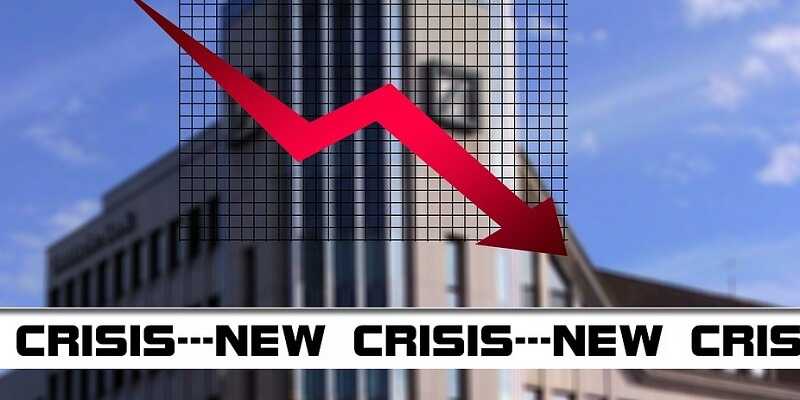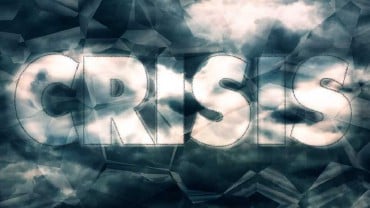 Analysts have black predictions for the coming year. The crisis is knocking the door.
Analysts have black predictions for the coming year. The crisis is knocking the door.
By Traders-Paradise Team
We will face the worst crisis, which is the analysts’ prediction. Here is the selection of their statements.
“The European Union is about to implode this year.” investor Mitch Feierstein has predicted in a New Year episode of the Keiser Report. He also unveils which country will become the next Greece. The answer is surprising.
This year will be hard for Europe not only due to Brexit. The other member states could also bring the bloc down, according to Feierstein. “Nationwide protests in France are only the first sign of looming wider unrest,” the analyst stated to Russia Today.
“You are gonna see global unrest. I think you’ll it as a feature in Italy when the EU tries to bully them,” the British-American investor noted, citing infective “draconian austerity measures.”
But, not only Italy but also France could follow the fate of debt-ridden Greece, Feierstein warned. He noted the low approval rating of President Emmanuel Macron, rising unemployment, and huge wealth inequality in the country.
“Italy has got four trillion in loans they said there are not going repay… France has got a similar situation but they’ve got civil unrest with the population burning down Paris. So one of them will leave,” he predicted.
Both countries have been breaking EU budget rules.
After just one year of compliance in 2018, Paris announced that its budget deficit for 2019 is set to be 0.2 percent higher than the three percent threshold that the bloc’s rules allow. Brussels agreed to tolerate the breach. The same as it had been doing so for almost a decade before Macron’s presidency.
Italy has also been at loggerheads with the 28-nation union. Last year, the EU Commission wanted to put Italy in an economic disciplinary program over a serious breach of EU regulations on debt. The standoff between Rome and Brussels was settled only in mid-December when Italy agreed to a budget deal despite domestic criticism from the opposition.
But Mitch Feierstein is not alone.
The economist Nouriel Roubini, also known as Dr. Doom also warns that we are in the midst of a new asset bubble that could end in a crash bigger than that in 2008.
He made a list of 10 reasons why the world is at the threshold of a new crisis. Almost each of them begins and ends with a single name – Donald Trampa. But also insults on his account.
As the first reason for the new crisis, Nouriel recognizes the fiscal-stimulus policies that are currently pushing the annual US growth rate above its 2% potential are unsustainable. His opinion is that by 2020, the stimulus will run out, and a modest fiscal drag will pull growth from 3% to slightly below 2%.
Second, the US economy is now overheating, and inflation is rising above target. The US Federal Reserve will thus continue to raise the federal funds rate from its current 2% to at least 3.5% by 2020. That will likely push up short- and long-term interest rates as well as the US dollar.
“The inflation is also increasing in other key economies, and rising oil prices are contributing to additional inflationary pressures. That means the other major central banks will follow the Fed toward monetary-policy normalization, which will reduce global liquidity and put upward pressure on interest rates.” – wrote Nouriel for The Guardian in September last year.
In his explanation he wrote further:“… once a correction occurs, the risk of illiquidity and fire sales/undershooting will become more severe. There are reduced market-making and warehousing activities by broker-dealers. Excessive high-frequency/algorithmic trading will raise the likelihood of “flash crashes.” And fixed-income instruments have become more concentrated in open-ended exchange-traded and dedicated credit funds.”
A new recession wave is coming
Joze Mencinger, Slovenian lawyer, economist, and politician, believes that the world is waiting for a new wave of economic instability. He is also called the architect of the Slovenian transition.
“Lately most of the crisis has been due to a lack of demand, because, mankind has no problem on the supply side, we have a problem on the demand side. We can simply say that the production of a car is cheaper than its sale,” Mencinger believes.
If there is just one question in this test: is the world awaiting a new crisis? It is frightening, but these economists would complete a positive answer.
There are many indications that growth will slow down. And this is in a way accepted today by IMF and World Bank officials in projections for next years.
Contrary to these catastrophic forecasts, we have to notice. In order to make a recession, employment usually falls, and growth becomes negative, industrial production falls. All of these indicators are still strong and do not indicate that we are entering a recession. Of course, there are some events that can lead to it and this should be followed.
The American stock market killed by a strong word
December events on the US stock market are, of course, something to be watched.
It all began before the Catholic Christmas when American brokers had the worst Christmas Day ever. The stock indices seemed to have been riding on the roller-cruiser because they returned to the highest level since 2009 the next day. Blumberg described this situation as bizarre.
The financial sector overlooks the real sector. Because in the real sector there are no such swings.
And it looks that the term ”bizarre” is just fine.
It seems that in December last year the US stock market killed a too strong word. The market did not come as a result of the fact that the US Federal Reserve Administration raised interest rates. From the tightening of the monetary policy, the much worse exchange was a “verbal delict”.
The market is always sensitive to what the officials of powerful states declare.
And perhaps officials today are not completely aware of this, but their word affects the markets. This is not a new phenomenon. This is well known and therefore traditionally central bankers give very careful statements. The fact is that their word is analyzed and evaluated by the investment public. It can affect the movement of prices in the financial market.
The bubble pops off in one place, but the crisis arrives everywhere
Big crises are like blowing balloons. The bubble that began to swell at the end of December soon vanished.
And it’s just when the indexes have come close to nearly 20 percent. This is considered a border, after which what investors call “bear market”. This means that the stock market is on a descending path and that the bad days are coming. Fortunately, this time it did not happen.
But, unlike in 2008, the governments had the policy tools needed to prevent a free fall.
”The policymakers who must confront the next downturn will have their hands tied while overall debt levels are higher than during the previous crisis. When it comes, the next crisis and recession could be even more severe and prolonged than the last”, pointed Nouriel Roubini.
The truth is one if we enter the new crisis. People around the world will pay these costs, and this will guarantee profits primarily to the super-rich. After all, they own property. Whether it is a state tax, an increase in the purchase price of goods and services, or any fees for services.
With the cut of costs, the rest of the welfare state will make this enormous debt will pay billions of the people by their work and their mostly poor income.



Leave a Reply